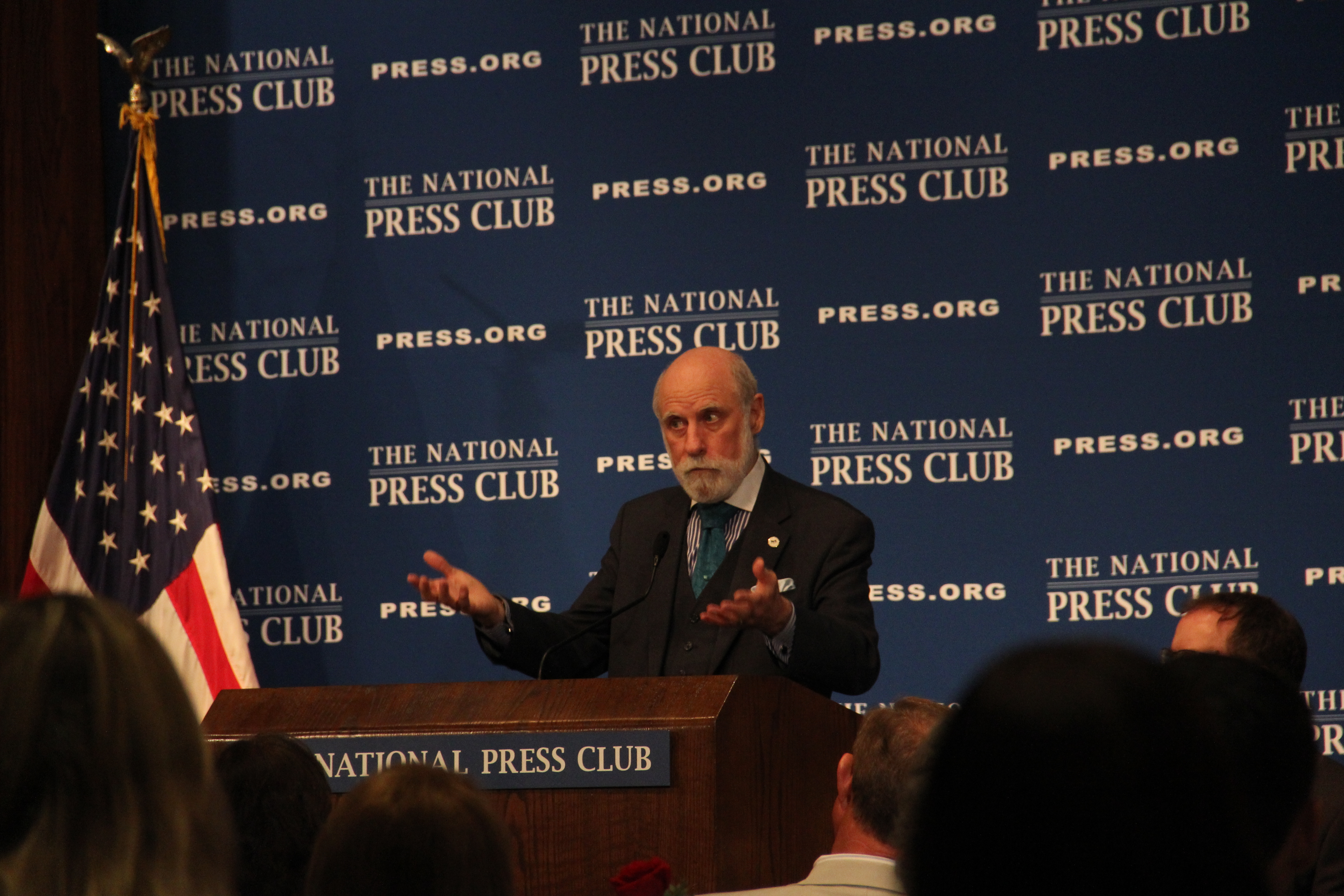WASHINGTON — From automobiles to toaster ovens, everything these days is being built to go online.
It’s an industry shift that will give companies access to usage information, allow consumers to program personal preferences into their appliances and add a “smart” prefix to lots more devices than just phones.
The problem: The current technology may not be available to accommodate them all.
So said Vinton Cerf, widely considered to be one of the founders of the Internet, who spoke Monday to a crowd of policymakers, journalists and personal groupies at the National Press Club.
Cerf’s resume, which includes the title of chief internet evangelist at Google and roles with a variety of blue-chip tech brands, thought-leading universities and government agencies, has earned him rock star status within the field of computer science. At the Pentagon’s Defense Advanced Research Projects Agency, commonly known as DARPA, he helped design the military computer network that ultimately became the Internet.
“There are estimates that say we will need 50 billion new Internet addresses,” Cerf said, referencing a famous prediction by Cisco Systems, Inc. “That sounds like a joke, but it’s probably not far off.”
This influx of devices – sometimes called the Internet of things – will require not only new assignment standards from the government agencies responsible for giving out IP addresses, but also new and more secure network protocols from Internet service providers like Comcast and Time Warner, notably a version called IPv6.
“Cerf and others are concerned not only with the new demand for addresses,” Washington-based software developer Mike Salera said. “They’re mostly concerned about security. That’s always going on between the lines.”
The addition of Internet capabilities to appliances will mean a proliferation of networks within households. A major technical challenge for developers and engineers is figuring out how to design secure networks that allow these devices to connect directly to the Internet, instead of through a central router, as phones and computers do now.
Cerf also delivered the familiar Silicon Valley refrain about net neutrality and the need for open, nondiscriminatory Internet access.
“Service providers shouldn’t be able to tell you what you can and can’t do,” he said. “That is for you to decide.”

